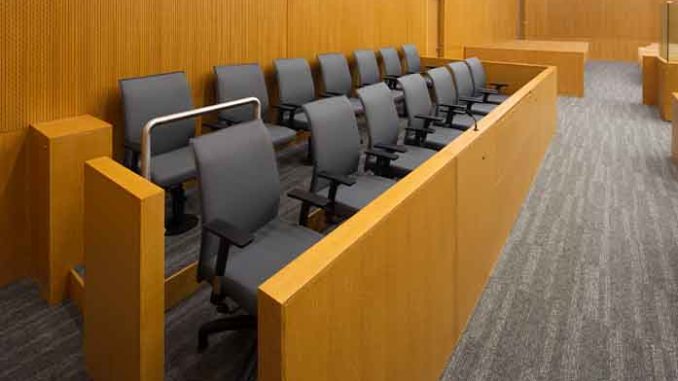
In reaffirming the role the press plays as the eyes and ears of the public, the chief justice of the Arizona Supreme Court is reminding judges across the state that media access of court proceedings “is necessary and important,” even during a pandemic.
On Nov. 18, Chief Justice Robert Brutinel revised his COVID-19 Administrative Order from May which restricted courtroom access to court staff, the parties and their attorneys, victims, witnesses, jurors, and “other necessary persons.” His new order makes clear his position that there is a public interest in ensuring media coverage of the court system.
“On request, judicial leadership should authorize admission of a media observer or a representative of a media pool to in-person proceedings to the extent possible considering social distancing requirements and courtroom space limitations,” Brutinel’s order reads.
Several courts and individual judges cited Brutinel’s May order when banning journalists from the courtroom even if only a handful of people were present in an area that normally sat 40 or 50 people. Some even noted if the supreme court had intended for media to have access then the order should have designated media as “necessary persons.”
Other judges, however, allowed reporters to attend proceedings as long as social distancing protocols could be complied with. That inconsistency led the First Amendment Clinic at the ASU Sandra Day O’Connor College of Law to reach out to Brutinel last month on behalf of two clients -Terri Jo Neff and David M. Morgan- who had difficulties covering several recent high-profile cases in Cochise County.
In a five-page letter to Brutinel, two ASU law students cited the Arizona Supreme Court’s longstanding recognition of the critical role the press serves within the judicial system. The students also documented the problems Neff and Morgan had trying to listen to a live audio feed during a recent murder trial, including instances when the reporters had to choose between losing their feed or remaining on line when obviously confidential conversations occurred between the defendant and his attorney.
“The Court should strive to allow at least one member of the press to attend in-person court proceedings because there is simply no substitute for the value of being physically present in the courtroom,” students Tayler Brown and Casey Miller argued. “Because of the uncertainty surrounding the COVID-19 pandemic, and without an end to the public health emergency in sight, it is paramount the Court take action to preserve the rights of both the public and the press related to access to our judicial system.”
On Tuesday, the students received an answer directly from Brutinel.
“During this health emergency, I meet frequently with the presiding judges from around the state and have discussed with them the importance of allowing media attendance whenever possible,” Brutinel wrote. “While I have verbally advised the presiding judges, additionally, I have revised the Health Emergency Administrative Order as reflected in the enclosed Order.”
For Gregg Leslie, the executive director of the clinic it was gratifying to see the chief justice agree with the students’ arguments and to know the new order will benefit journalists across the state.
“Public access is an important part of our system of open and fair trials, and reporters need to see what transpires in court to accurately report on it,” Leslie told Arizona Daily Independent. “We are very much aware that operating a courthouse during a pandemic is a difficult proposition, and we’re pleased to know that the Chief Justice has chosen to hear our concerns and incorporate changes into this policy at such an important time.”
Miller said he was encouraged to see how quickly the Arizona Supreme Court made it clear the justices were committed to protecting First Amendment rights.
“The amended order ensures that journalists have the access they need to report on the stories that matter to their local communities,” he said. “I’m thankful the Court listened to our concerns and hope Arizona journalists use this access to the benefit of their readers and viewers.”
Brown meanwhile pointed to the wealth of First Amendment precedent in Arizona on the issue of access to the courts.
“These historical precedents of open and transparent court proceedings need to be protected, and I am happy that the Clinic was able to work with local journalists in ensuring that public oversight of the judicial system will continue and will be recognized as a valuable contribution in our society,” he said.
